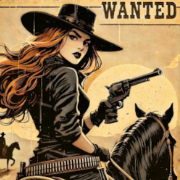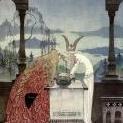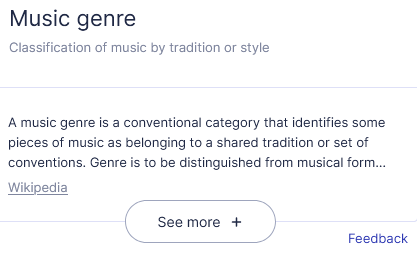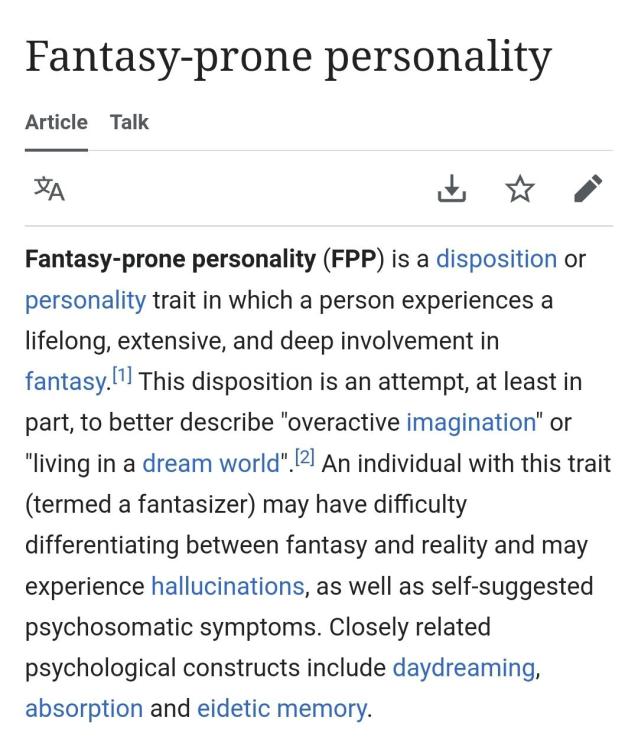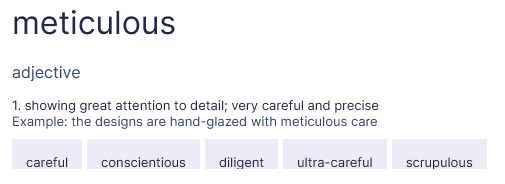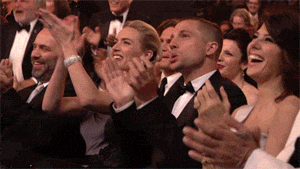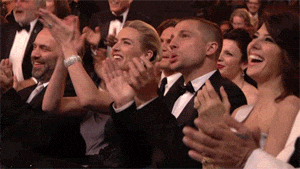Leaderboard
Popular Content
Showing content with the highest reputation on 04/17/2025 in Posts
-
I had another thought that I want to share. I have a mental health diagnosis, and my ability to write music quickly and into the sequencer/DAW went away at around the same time that I was diagnosed. Back when I used to write that way, I remember that my process of writing music was very sporadic and consisted of basically trying to throw $hit at a wall to see what would stick. There was no deliberation and contemplation between my musical decisions and I produced a lot of material that I never developed into finished pieces of music. I remember that, at that time, I was very bipolar about my creation process and I believed the romantic myth about creators getting a "stroke of inspiration" or being "inspired by their muse" or something. So most of the time I ended up feeling uninspired and didn't like the ideas that I'd come up with and hence never continued them to see where they would lead. When I did get good ideas I would spend long periods of time at the computer to get as much out of a good streak of luck at composing as I could and often stayed up all night. In that sense it was like gambling at a casino or something. While being hospitalized at the mental hospital, I had to learn to write music on paper and inadvertently discovered a different, more measured way to compose music. The benefits of composing on paper were not all apparent to me all at once. But besides forcing me to imagine a composition without hearing it and the many advantages of doing so that I've already espoused above, the other big advantage of writing on paper was that it forced me to slow down the process to where my brain could cope with the creative process and the craft and actually contemplate my own ideas at a manageable pace. I think, in comparison to how I used to compose, I was composing in a much calmer, and controlled way. I never realized how emotionally exhausting and anxiety inducing my previous way of composing was until I got my mental illness, and it's possible that I got my mental illness in part because I was "the creative type" and that I forced myself through drastic emotional upheavals in order to create. The truth is, I can no longer cope with trying to write music the old way. But I do believe that writing music on paper is the right way for me to compose for who I've become and who I am today. And that must naturally include all my strengths and weaknesses as a human being and composer. Once again, thanks for reading.3 points
-
It sounds fantastic! I really like the organ and its ability to color with the cantidd of timbres available, when used well. As it happens here. I think the original composition is well suited to the instrument, or the other way around, by virtue, of course of a good arrangement. Just an observation about the “agitato” passage from measure 34. I think the chords in the middle part sound too “abrupt”. I don't know, maybe it's the intention, but what strikes me most is the transition to the next part in measures 41-42, which does sound sudden. Thanks for sharing. Regards.2 points
-
I personally can't imagine writing by hand (after all, this is why I am investing time into a new music notation software 😄), however I understand your reasoning. Writing by hand is much more deliberate, and requires a more concerted effort not to just throw things at the wall as you say. I think at the end of the day, it comes down to discipline. If composing on the computer takes away that discipline for you, stick to paper and pencil. Maybe you can train yourself someday to compose directly on the computer, but only if you can maintain that certain level of discipline. As for me, I force myself not to move onto the next section until I am happy with the current section I am working on. And this approach seems to work well for me, whether by hand, or by 1s and 0s!2 points
-
ello everybody, I've spent many months working on three short new piano pieces for beginning to intermediate students. These are originally intended for children to play, but could also be for beginning adults. In these pieces, I've also tried to discover my own voice and style, do let me know how I've done in those areas. Other feedback related to technique, harmony and playability would be much appreciated. Poem 1: "based on a theme by Beethoven", updated score Poem 2: "the quirky detective", updated score Poem 3: "the crazed capybara", score1 point
-
If I had the amount of followers on YouTube these audio engineers do, I'd honestly make my own video tearing these apart. The irony of these videos produced by audio engineers stating "the real reason today's music all sounds the same!" is that they are all saying the same things every other audio engineer is. and they're all wrong. This is a subject that really needs an experienced, old composer's perspective on. To his credit, Billy does passingly mention things like 120 bpm, loop packs and a lack of key changes, but his arguments are still mainly "Everyone is recording the same way." like what Rick Beato and Glen Fricker talk about. "No one is recording guitars with real mics! They're all using Superior Drummer! They're quantizing!" etc. Yet they cannot explain why so many different-sounding albums in popular music used and still use the Shure Sm57, Marshall JCM800, Celestion Speakers, 6L6 tubes, and a Gibson Les Paul or strat with DiMarzio super distortions. How come everyone who writes for an orchestra doesn't sound the same? It reminds me of how, back in my electronica phase, guys said not to use presets because "You'll sound like everyone else!", and then proceeded to plop down a four-on-the-floor (the only beat they know) with an offbeat or side chained, straight 16th note bassline just like everyone else. Guy...I don't think it's the patch you chose for the bass that is causing you to sound the same. Stuff sounds the same now because everyone is WRITING THE SAME MUSIC I don't know why this isn't obvious these guys; it should be obvious even to a layman. Like I said in the thread about "what makes a chord move poorly": This thinking in terms of "chord progressions" is one of the things making everything sound identical, as is the dominance of "ostinato". It's just crazy to me that someone out there is laying down "epic" drums and plunking in that "root-third" 8th note ostinato every trailer piece plays on the violas and thinks to himself "...I'll bet if I had my own string library, I'd sound unique!" Granted, I do think that it helps to an extent. I don't think anyone else's mockups sound quite like mine due to me having a rather unique collection, but this by itself would not be enough. I like to lean into genre tropes, but as @PeterthePapercomPoser accurately noticed in my latest cinematic-metal track, the guitar riff is a seamless mix of Phrygian and the diminished scale. Most metal bands today would stick to the Phrygian the whole way through the song. Curious to hear your thoughts. In my opinion, it is a more damning report on the current state of the music industry that everyone seems oblivious to the obvious decline in craftsmanship at the songwriting stage than it is that everyone is using Superior Drummer.1 point
-
Sounds great. The voices, their melodies, harmonies and solemnity remind me of a fantastic opera by Philip Glass (Akhenaton), but not the kind of accompaniment. The role of the piano is very “passive”, although it serves as a support for the voices, I think it could take in specific moments a more active role. I think that the final high note in one of the voices is a bit out of a normal tessitura for what is being developed during the piece. What I'm not so sure about is the violin, especially when it doubles a voice. It would be nice to see the score at the same time. Thanks for sharing. Regards.1 point
-
1 point
-
Hi @Mooravioli! I especially like the crazed capybara piece! It is so quirky and reminds me of Debussy's Children's Corner - Golliwog's Cakewalk! I think with the complex harmonies and key signatures and meter changes, this is far from a beginner piece. Perhaps it might not seem that hard to play in terms of the technique etc. But to learn the right notes and rhythms conceptually for a child would be quite a challenge I think! At measure 57 you have the tempo marked as quarter = 120? Are you sure that's correct? That part seems to be quite slow. I have to say that my favorite parts are ones marked quarter = 165. The figurations there make me think of a flurry of capybara activity! LoL Thanks for sharing these pieces! I think the last one especially is quite unique and individual to you!1 point
-
DISCO-music , does not sound like COUNTRY-music ROCK-music , does not sound like CLASSICAL-music TRADITIONAL FOLK-music , does not sound like HIP-HOP-music ------------------------ Therefore the Statement: "The Reason Today's Music All Sounds The Same" .........is in fact Totally Flawed........With ......Zero-Credibility.........because The GENRE of the music .........is what dictates its Identity.0 points
-
0 points
-
0 points
-
lol ofc I'm not qualified to give medical advice in mental health. I am not even giving advice lol. Who said you have mental health disease?0 points
-
0 points
-
0 points
-
Those 2 concepts you stated , are meticulously developed and used by Mainstream-commercial producers & composers. Amateurs & Professionals sometimes think in 2 opposing ways.............INTERIOR vs EXTERIOR.........MINIMIZER vs MAXIMIZER Their Interior-Fantasy-World , doesnt always relate to the ............Exterior-Reality-World............which usually results in Rejection of scripts.0 points
-
0 points
-
2 Additional Main-Theme Re-Creations. N.F.L. Vindication by David Robidoux RE-CREATION.mp3 STAR TREK theme by Jerry Goldsmith RE-CREATION.mp30 points
-
0 points
-
0 points

.thumb.png.8b5b433a341551e913a34392660bc95b.png)


